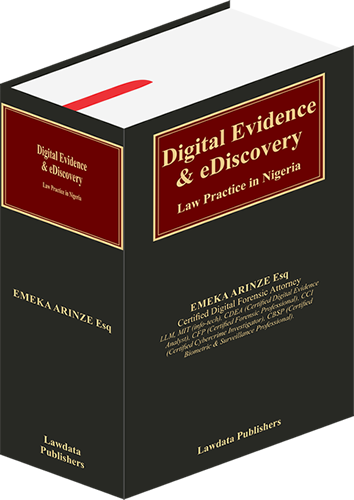Certification Program in eDiscovery, Digital Forensic Investigation and Prosecution
For Law Enforcement Agencies
Overview
The proliferation of digital devices, and the advances in digital communications, have created ubiquitous and ever-increasing presence of digital evidence, in almost every conceivable crime. Today, we use computers in our homes, offices, and workplaces, to create, store, and communicate every type of information imaginable; from the most public, to the most sensitive, including trade secrets, privileged communication, and private correspondences. Criminal enterprise with high level of anonymity provided by the Internet, is quick to turn to the virtual space, taking advantage that accrued, to legitimate businesses, in utilizing computers to store records, execute transactions that aid the commission of diverse range of criminal activities that know no borders, either physical or virtual.
The good news is, that every action of an individual whether legitimate or otherwise leaves a trace, be it physical or in the digital domain. This is most graphically captured by Dr. Paul Kirk, Professor of criminalistics, when he postulated that:
“wherever an individual steps, whatever he touches, whatever he leaves, even unconsciously, will serve as a silent witness against him. Not only his fingerprints, or his footprints, but his hair, the fibers from his clothes, the glass he breaks, the tool mark he leaves, the paint he scratches, the blood or semen he deposits, or collects. All of these and more bear mute witness against him. This is evidence that does not forget. It is not confused by the excitement of the moment. It is not absent because human witnesses are. It is factual evidence. Physical evidence cannot be wrong, it cannot perjure itself, it cannot be wholly absent. Only human failure to find it, study and understand it, can diminish its value.”
In other words, when data in a system is tampered with, unauthorisedly accessed, copied, or find its way out of the machine, whether sent to the cloud, servers, printer, emailed, burned to optical disk, or spirited away on a flash drive, or passed through switches, routers, and many other network devices, engaged in both private and public sectors, each conduit carries data away and leaves data behind as evidence of the transaction.
Therefore, in all criminal cases, digital or otherwise, where the perpetrator of a crime has entered the crime scene, and while committing the crime, there is always an exchange between the perpetrator and the crime scene and or the victim, if any. For example, a hacker gains access to a computer system that may or may not be secure, on the surface, the hacker may leave no physical trace of his having been there. The hacker may not have left latent fingerprints, footprints or traces of physiological fluids in the wake of his intrusion. But electronic activity in this case can be far more valuable in the bits and bytes this activity would have left behind. Therefore, at the heart of every crime scene, where and when gathering evidence is at issue, there exist two basic questions the investigator must address,: how would the investigator find and acquire the evidence and how would he properly document them, when found? Only human failure arising from technical incompetence to trace that evidence, evaluate, and examine it by deploying a range of digital tools for that purpose, can diminish its evidentiary value in the course of criminal investigation and prosecution.
Program Outcome
-
Digital Evidence & eDiscovery
-
Digital Forensic Investigation/Prosecution
-
Digital Forensic in Cyber Security & Incidence Response
Features
- Scheduled Zoom Meetings
- Training Videos
- Online Self-Test
- Discussion Forums
- Assessments
Training Resource Tools

The Book
Digital Evidence & eDiscovery Law Practice

Logikdoc
Electronic Document Discovery Management System

ExhibitSecure
Digital Exhibit Management, Authentication, Security & Trial Presentation
Convener

